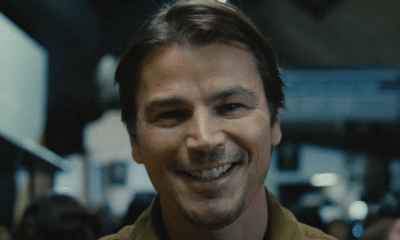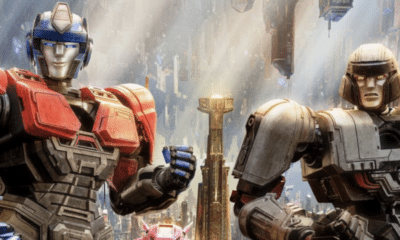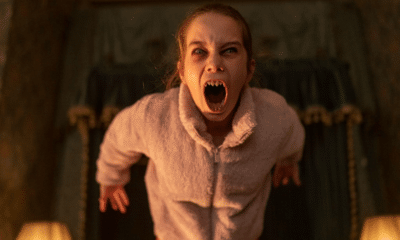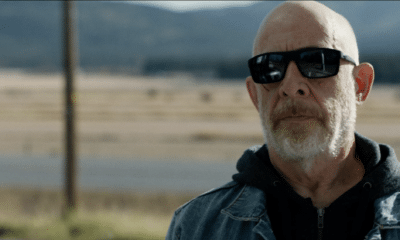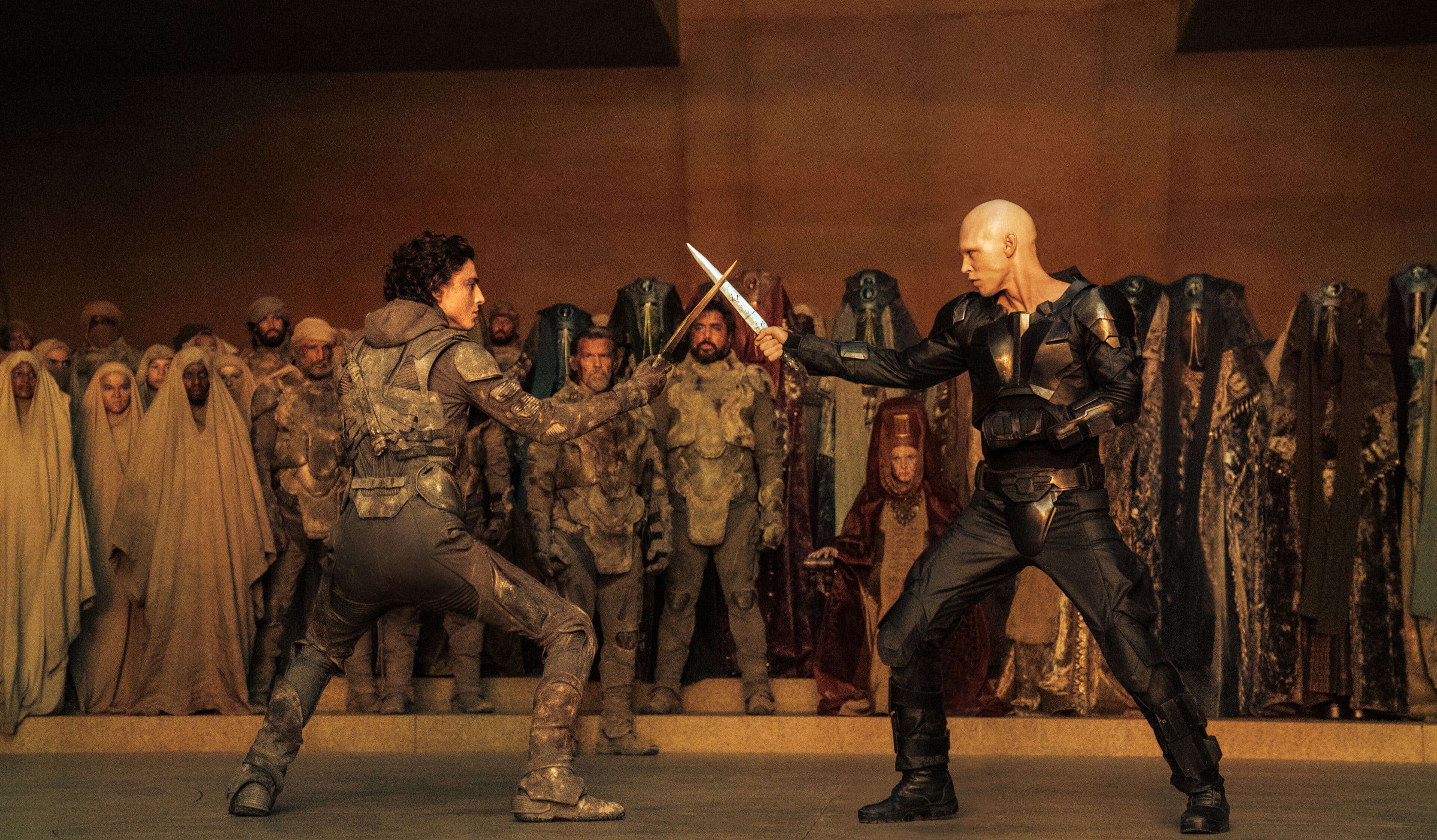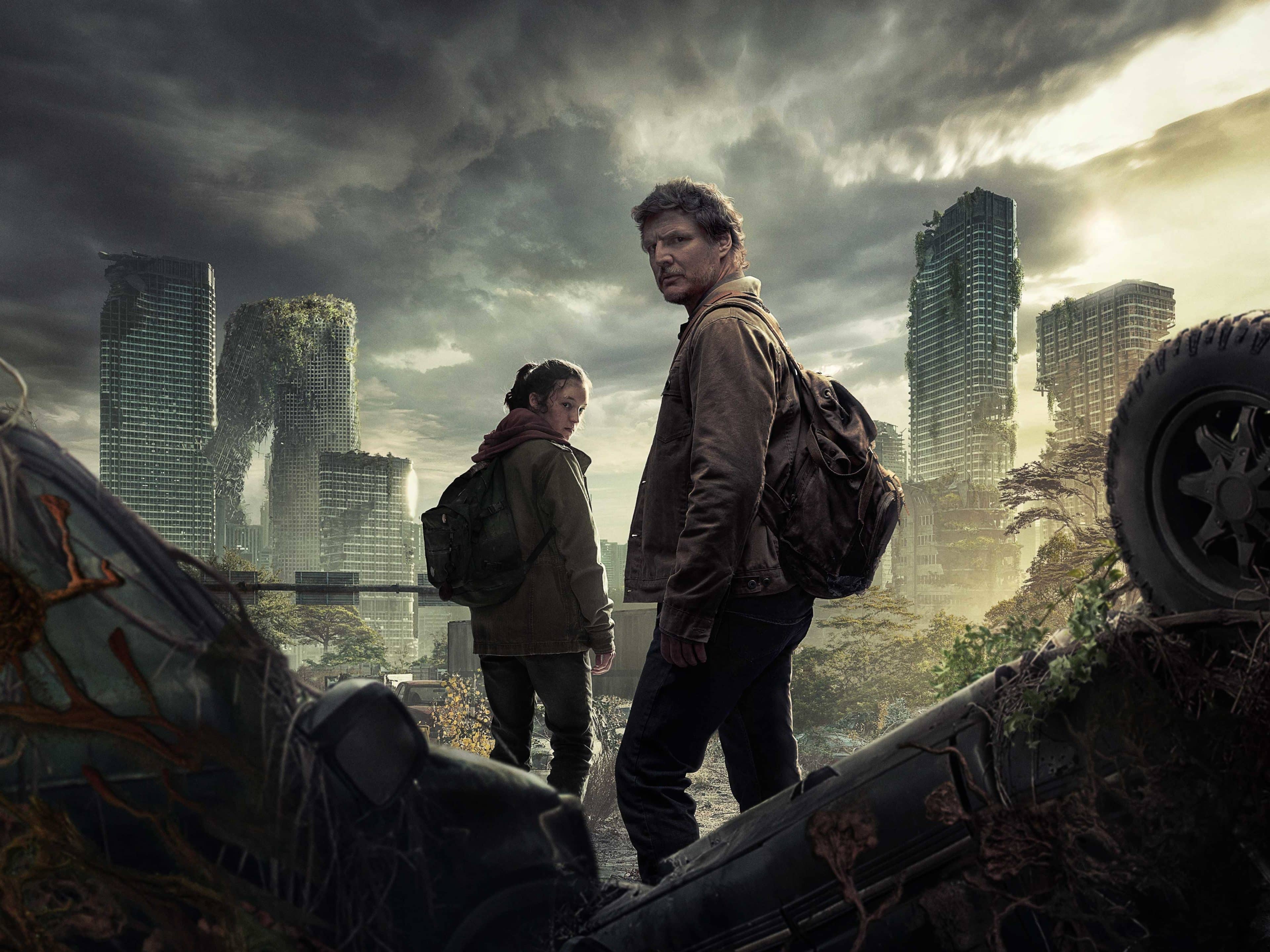Cuba Gooding. Jnr is running late. Very late (through no fault of his own, we hasten to add). But he’s late all the same.
But no matter, because we’ve been left in a plush hotel room in Soho with the very laid back and charming Anthony Hemingway, director of upcoming Lucasfilm historical drama RED TAILS, which presents a fictional take on the story of the Tuskegee Airmen in World War 2. Famous for his work on US television dramas such as THE WIRE, BATTLESTAR GALACTICA, TREME, and TRUE BLOOD, RED TAILS marks Hemingway’s first feature film, and it’s one he’s keen to discuss, whilst we wait for Cuba to arrive…
 Who’s the target audience for RED TAILS?
Who’s the target audience for RED TAILS?
AH: Well, I suppose I’d have to piggyback on George Lucas’ desire, which was boys and girls. Really giving them a tool, something to inspire them with, and something they can use to believe that anything is possible. So that really was the target audience. I mean, I was really hard because, being an historical piece, you naturally think it’s for adults. Which was the challenge, because I felt that kids didn’t know anything about this part of history, they don’t know who the Tuskegee Airmen are. So trying to figure out ways to draw them in was the real challenge for us.
With that in mind, how did that affect your approach to making the film?
AH: Well, with anything generally, I think number one, it couldn’t be preachy. It definitely couldn’t be heavy handed, and really it didn’t need to be. I think you can deal with that in a very short span, and I think the opening lines of the film just does it. I don’t think we really had to focus on it as much. The 1995 film that HBO did (THE TUSKEGEE AIRMEN) really told the history, so you got to see the and understand the foundation of where they came from, and so then we were able to have fun with it and make it a real roller-coaster ride. And something that I feel with a lot of things, and especially in appealing to younger audiences, was you know, make them laugh bring them in, and then their sucker punched with an education. It was a really fun challenge to dive into.
When did you come onto the project?
AH: Pretty early, if you want to say early. Even though this has been on the table for over twenty years, once they decided that this thing was really going to happen, George bought me on.
What was it like to be working with George Lucas? Intimidating perhaps?
AH: Well, it’s funny because I worked for them (Lucasfilm) as a production assistant on THE YOUNG INDIANA JONES CHRONICLES. So it pretty much came full circle. I wouldn’t say I was intimidated. It got to a point where I did feel the pressure, but that wasn’t George, that was more about trying to do the Tuskegee Airmen proud, and get them the honour and respect they were so well overdue. I’m second generation, so I grew up in the industry, so I’ve had the chance to work and be around with some real heavyweights. So intimidation wasn’t really the factor, it was more the stress (laughs). I caught Shingles doing this film. That was mainly when I was here doing the casting (laughs). So yeah, it was more stress really, to really conquer a really daunting task. Something I set myself a really high mark for wanting it to succeed.
Before this, had you been ready to make your debut as a feature film director, after all your work in television?
AH: I absolutely was ready. Maybe three of four months before I got the phone call to meet George, we’d had the writers strike in LA, and I was sitting I the living room with a friend, and we were just talking about life and career choices, and all that, and I was saying ‘I’m ready’, because I’d been reading a lot of scripts that had been coming my way, ones that I didn’t really respond to, and I wanted something with integrity, something that was important. I’ve been very fortunate to be a part of some really great work, works that I’m proud of, and I wanted my feature career to be the same. So when that phone call came, that was the answer to my prayers.
 Did you have to pitch to George Lucas to get the Gig?
Did you have to pitch to George Lucas to get the Gig?
AH: I did, and that’s when things started to get a bit stressful (laughs). Because I felt, what am I going to tell George Lucas?! What am I going to show him he hasn’t done already?! So I went in and having not done a pitch on that kind of scale before, I really didn’t know what to do. So I had a conversation with a friend of mine, who knows my work as an AD, as a director, and all that. And he basically turned a light bulb in my head on. He told me, go in and run that meeting like you’d run a production meeting, which I’d done so many times already, I can do it with my eyes closed. And that was what I really needed to hear, because then I knew what to focus on. I had two days to prepare for it, that was the real challenge. I was working on HEROES for the first time, which was when I had just got sent the script, so I’d just finished pre-production on that, so there was like no time. I basically didn’t sleep for three days. I’d prep all day for HEROES, then I’d go home at night, call my storyboard artist, chose three sequences in the script to focus on, and read and reread them over and over, and figure out what I wanted to talk about, what needed strengthening, what characters I wanted to focus on, and starting to build on the canvas what RED TAILS eventually became. But hey, it worked.
You’ve worked a lot in Television, and especially HBO. Did you take much of your experience from working on those shows when setting out to direct RED TAILS?
AH: Absolutely, and I think you do that when you approach doing anything. For me every part of my life and career has been a stepping-stone to where I am. So I was able to call upon past experiences, whether it was working with Visual FX or whatever, you always use the past.
And what was more fun to shoot? The action or the more emotional scenes in the film?
AH: It’s all fun! The action sequences, I mean, you get to play. You know, it’s like your playing a game. So you’re still telling a story, but you’re able to be in a space where there are no boundaries really. So you have freedom. But I love the drama, and being able to really just create there as well, so it’s all fun for me.
You sent the cast to Boot camp apparently?
AH: Oh yeah!
What was the reasoning behind this?
AH: Well, I felt like, none of us have flown a plane. None of us have been in the military. There were elements in there that needed to come out. And also one of the main things was taking these young kids who are in a contemporary state of mind, and putting them back in time, and making sure they had the mannerisms and could talk like those men talked, and lose all the swag we have today. So it was really about trying to strip that out of them.
 During production, George Lucas had to take over shooting whilst you were involved in re-shoots for TREME. Did you liaise with George and the cast much during this?
During production, George Lucas had to take over shooting whilst you were involved in re-shoots for TREME. Did you liaise with George and the cast much during this?
AH: Yes, absolutely! Every day, I’d talk to these guys everyday (he points to Cuba Gooding Jnr, whose just walked into the room), just to still give them notes and let them know I was still with them, even though I wasn’t.
You were saying about the younger actors in the film, and how you would strip away their contemporary baggage on set. Were you trying to leverage Cuba and Terence (Howard)’s screen personas as seasoned leaders by doing this?
AH: I didn’t have to worry much about Cuba and Terence. They’re thespians. But they definitely helped me, in ways like making sure the younger guys showed up prepared. They would work on their weekends, going through scenes and working stuff out, and helping out a lot of the younger guys. They helped mentor them.
Cuba, is it true you were stalking Anthony for this role?
CG: Oh yeah!
AH: I’m glad you’re here now (laughs)!
CG: Well, one of the hindrances of this film was to start afresh, give a new take on it, and not give a take of the other film HBO did earlier. And so that meant no actors involved in that one be involved in this one. But I said to Anthony, listen, their not telling many of these stories in Hollywood. And I said, I’ve done a lot of films, I am laser focused to make sure the portrayal in this movie is true. And why wouldn’t you utilize that, no matter what my association with the other film is? And we just clicked, there was definitely a connection there, we’d end up talking over each other. And I think to answer your question earlier, there is a sense that people get when they see me on screen of familiarity, not just because of JERRY MAGUIRE, but all the other military films I’ve done, like PEARL HARBOUR and MEN OF HONOUR. You don’t have to strive to find truth in the character if you say Cuba Gooding Jnr is this military man, I mean that, coupled with these new voices like Ne-Yo and David Oyelowo and Nate Parker, I think that was a nice marriage, so that the relationships and situations that you put these young airmen in instantly becomes something people can identify with. And then you couple that with the magic that is George Lucas, in terms of how he was going to recreate these battle sequences. I think that was the recipe to make this movie a true event, as opposed to the HBO film, which was a more an exploration into the racism they had to endure in Tuskegee, Alabama, during the training. This film was more about the heroism during the war effort.
Is it an archetypal film then? In that sense, it’s a very clear Lucasfilm production, this take on the story, and also in terms of you and Terence Howard playing those parts. Shorthand perhaps? Ho do you feel about that?
CG: No, that’s it. Shorthand’s great. I think that’s why you still have celebrities that survive, you know? It makes audiences comfortable. Let me give you a music analogy – Michael Jackson’s music is sampled so much, especially in the hip-hop world, because as soon as you hear one of two notes, your shoulders drop and you get into the beat. And then you hear the new voice, be they a singer, a rapper, or whatever, and you’re open to it. And I think that’s the idea behind music. You establish the actors and then you get these new directors with these new voices and their interpretation of their performances, and then you have a new voice in Hollywood.
 The actual surviving Tuskegee Airmen were there during filming. What was that like?
The actual surviving Tuskegee Airmen were there during filming. What was that like?
CG: It was magical. They would sit there and talk to us about it all. I mean, I did this other movie, MEN OF HONOUR, and every other day of training for that one, they’d be like hold your breath too long you can die, come up too fast you can die. Everyday was like ‘death’! And that’s what these men wanted us to understand, the gravity of the situation and the war machines they were in and what it was like to be a 19-year-old going at such fast speeds. But at the same time, when you hear them tell the story, you see the pride kind of swell up. I asked one of them, did it ever freak you out to know that you might not come back from one of those missions, and he goes: yes and no. We all looked at it that if we died over the skies of Berlin in a plane, then out legacy would be intact. We’d be heroes. But if we went back to the states, we’d be second class citizens.
Do you feel more any sense of responsibility when portraying a role that is true life as opposed to fictional?
CG: Sure, I mean, it’s my job to bring truth to the character of any role that I inhabit.
And this isn’t the first time you’ve played a Tuskegee Airman. Did you bring much of your experiences and research from working on the HBO film to this one, or did you start afresh?
CG: No, I did, though I weren’t going up into a plane again, I can tell you that much (laughs). You know, the thing about these pilots is they love to impress the actors by having them throw up. So when they went up again with the kids on this movie, I was like no way! I know exactly what you’re looking to do! But yeah, it’s funny too, because in the first movie, Courtney B. Vance was the man giving the speeches in the classrooms. And I ran in to him recently, and we sat and laughed, and he said ‘Wow, look how far you’ve come from this kid, crashing your plane, to taking my job in the movie’. So yeah, I think all the roles inform each other.
Did you really smoke the pipe?
CG: Oh yeah. Yeah, that was great (laughs).
RED TAILS opens in Cinemas 6th June.
From an early age, Matt Dennis dreamt of one day becoming a Power Ranger. Having achieved that dream back in the noughties, he’s now turned his hand to journalism and broadcasting. Matt can often be found in front of a TV screen, watching his current favourite shows such as DOCTOR WHO, GAME OF THRONES, SHERLOCK, DAREDEVIL, and THE WALKING DEAD, though he’s partial to a bit of vintage TV from yesteryear. Matt also co-presents the Geek Cubed podcast, which you can download from iTunes. It’s quite nice.

Latest Posts
-


Film Trailers
/ 1 hour agoM. Night Shyamalan’s ‘Trap’ trailer lands
Anew experience in the world of M. Night Shyamalan.
By Paul Heath -


Film News
/ 16 hours agoFirst ‘Transformers One’ teaser trailer debuts IN SPACE!
The animated feature film is heading to cinemas this September.
By Paul Heath -


Film Reviews
/ 17 hours ago‘Abigail’ review: Dirs. Matt Bettinelli-Olpin & Tyler Gillett (2024)
Matt Bettinelli-Olpin and Tyler Gillett direct this new horror/ heist hybrid.
By Awais Irfan -


Film Trailers
/ 18 hours agoNew trailer for J.K. Simmons-led ‘You Can’t Run Forever’
A trailer has dropped for You Can’t Run Forever, a new thriller led by...
By Paul Heath
